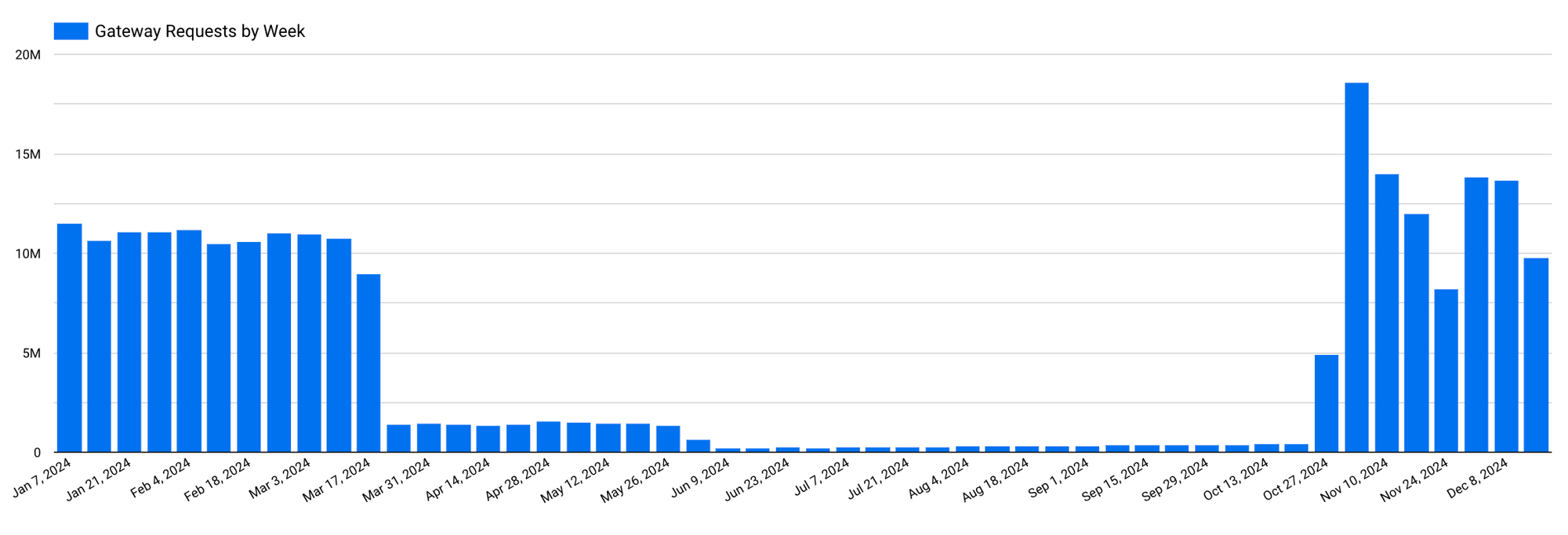Epic Blocked over 420,000 Americans' Health Records from Doctors for Seven Months
From March 21, 2024 to November 1st, over 420,000 Americans had portions of their health information withheld from their healthcare providers by Epic. Epic blocked their own customers – health systems using their EHR software – from being able to request data from Particle. These actions reached hundreds of health systems across the United States. Doctors did not have access to important health histories at the time of a patient visit – and there was no way for them to know. This is why Particle took action and it’s why this portal is public.
In June, when the systemic information blocking was discovered, Particle reached out to Epic, only to be met with denial to restore the flow of information. With concerns for patient harm, Particle alerted Health Systems and offered to provide real-time evidence of information blocking at a patient-by-patient level. On July 30th, Particle filed an information blocking complaint with the ONC. The next day, the complaint was passed on to the Office of the Inspector General for the Department of Health and Human Services for review, penalties, and enforcement. The information blocking claim is available here. As we wait for an update on this complaint, Particle is committed to maintain a dashboard detailing what happened and to provide ongoing updates to raise awareness.
While Epic restored the flow of information in November 2024, this fact pattern sets a troubling precedent. Epic engaged in over seven months of information-blocking. If HHS OIG does not enforce information-blocking rules and there are no consequences for months of intentional blocking, then there is no disincentive for Epic or other actors to use blocking as a tool to wield influence.
420K+
patients
25K+
providers
436
health institutions
Epic's Drop in Requests to Particle

This graph represents the total number of Epic requests to the Particle gateway for clinical data in 2024 (week by week view). Epic unilaterally blocked it's customers from access to the Particle Gateway, causing the stark drop-off in request volume to Particle from March 21st through November 1st.
Information Blocking 101
Health information blocking refers to processes that hinder the access, sharing, or use of electronic health information (EHI). The 21st Century Cures Act (Cures Act) seeks to prevent information blocking and encourage the smooth and secure access, exchange, and use of EHI.
A regulatory outline for information blocking can be downloaded here.

Information blocking can have significant impacts on patient care, and the enforcement of information blocking penalties is critical. The sudden disconnection jeopardizes clinical operations, patient treatment, and erodes the trust and confidence essential to a Trusted Exchange Framework.
The bi-directional exchange of information between providers ensures that all providers have access to health information necessary to effectively treat patients. This includes critical data like medications, diagnoses, procedures, allergies, lab results, and more. When providers can't access important medical records for their patients, it poses a risk to patient safety and negatively impacts treatment.
Ready to #stoptheblock?
Sign the petition below to help put pressure on the government to take action. You can also email us at infoblocking@particlehealth.com
September 20, 2024
The Honorable Xavier Becerra
Secretary
U.S. Department of Health and Human Services
200 Independence Ave., SW
Washington, D.C. 20201
Dear Secretary Becerra:
We write to you as patients from across the country who are concerned about ongoing information blocking that is preventing our electronic health information (EHI) from reaching our medical care providers. This information blocking is detrimental to our quality of care.
We appreciate that HHS is fully committed to ensuring timely and full access to health records so that patients like us can receive the care that we need. We were encouraged to see HHS publish final rules to disincentivize health care providers from engaging in information blocking, and we believe rulemakings like this help HHS and health care providers to live up to the promise of the 21st Century Cures Act (“Cures Act”). Now that the rule is final, we ask that HHS take all necessary steps to fully enforce the authority laid out in the rule so that health care providers cannot interfere with or prevent the exchange of critical EHI.
Health care data blocking can negatively impact patient health and the quality of care that patients like us receive. Information blocking can prevent clinicians from making fully informed decisions about diagnosis and treatment, which can lead to delays in care or potential errors. Information blocking can also raise costs and reduce the timeliness of effective treatments. Ultimately, information blocking is a violation of the fundamental trust and transparency that underlies the communication and shared decision-making process necessary for a successful patient-physician relationship.
We ask that you use all of your available authority to ensure patients always have access to their own health information, and to ensure that health care providers can access that information when making critical care decisions.
Sincerely,